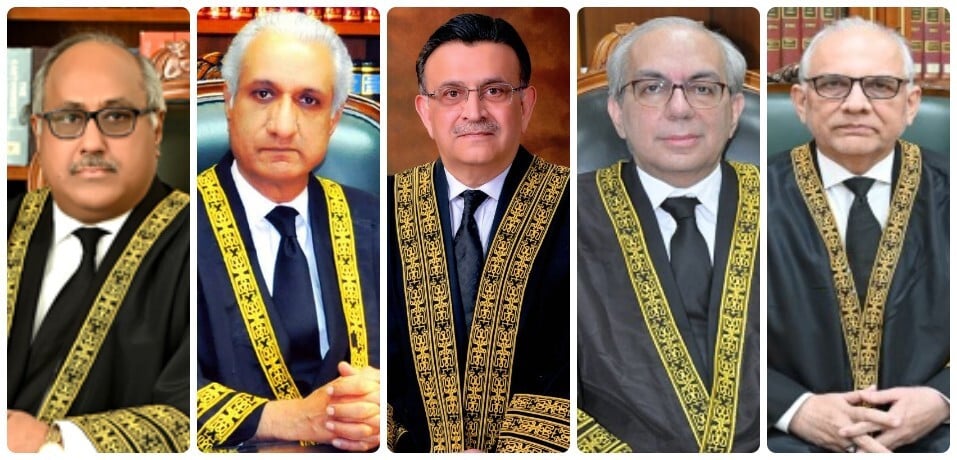In a significant development, Chief Justice of Pakistan Umar Ata Bandial emphasized the exclusive authority of the chief justice to nominate judges for inquiry commissions. A five-member larger bench, led by the esteemed Chief Justice, heard petitions challenging the government’s formation of a judicial inquiry commission to investigate leaked audio recordings related to the superior judiciary. This article delves into the key arguments presented during the hearing and highlights the pivotal role of the chief justice in the appointment of judges for such commissions.
1. The Formation of the Judicial Inquiry Commission The federal government recently established a judicial commission to probe into leaked audio clips allegedly involving current and former members of the superior judiciary and their family members. This move aimed to ascertain the authenticity of the recordings and evaluate their potential impact on the judiciary’s independence. The three-man judicial commission, led by Justice Qazi Faez Isa, also includes Chief Justice Naeem Akhtar Afghan and Chief Justice Aamer Farooq.
2. The Opposition to the Commission President of the Supreme Court Bar Association (SCBA), Abid Zuberi, filed a petition challenging the formation of the judicial inquiry commission. Zuberi argued that the commission violated several constitutional articles, including articles 9, 14, 18, 19, and 25. This petition triggered Chief Justice Umar Ata Bandial to form a five-judge larger bench to address the concerns raised against the commission’s formation.
3. The Role of the Chief Justice in Nominating Judges During the hearing, Attorney General of Pakistan (AGP) Mansoor Awan expressed reservations about the inclusion of Chief Justice Bandial in the bench. The AGP referenced the 6th Amendment, which pertains to the retirement of chief justices of the Supreme Court and high courts. However, the court expressed disappointment with the government’s decision to proceed with the nomination of judges for the commission without consulting the chief justice.
READ MORE: Arrest of Former Punjab Chief Minister Pervaiz Elahi: Latest Updates and Developments
Chief Justice Bandial firmly asserted that the power to nominate judges for a commission solely rested with the chief justice. He emphasized that the government could not cherry-pick judges based on its preferences. The chief justice stated that while he was not obligated to include himself in the commission, he was also not bound by the government’s wishes. He highlighted the importance of preserving the independence of the judiciary and criticized the government for hasty legislation aimed at regulating the chief justice’s powers.
4. The Government’s Nomination of Judges The court noted the government’s previous issuance of three different notifications nominating judges for the inquiry commission, which were later retracted. The Attorney General argued that the 2017 Act, governing the commission, had not been challenged. However, Chief Justice Bandial urged further deliberation on this matter, emphasizing the need to maintain the constitutional traditions and the separation of powers.
5. Constitutional Concerns and Division of Powers The court expressed reservations about the constitutionality of the inquiry commission, citing a breach of the trichotomy of powers and Article 209. Justice Munib Akhtar highlighted that granting the commission the powers of the Supreme Judicial Council raised concerns. He questioned the transfer of misconduct cases from the council to a commission and emphasized the importance of upholding the division of powers enshrined in the constitution.
Furthermore, the court expressed disappointment over the government’s failure to restrain the media regulatory authority, PEMRA, from broadcasting the alleged audio leaks. This lack of action further underscored the need to protect the judiciary’s integrity and prevent breaches of constitutional principles.
Conclusion: Chief Justice Umar Ata Bandial’s remarks during the hearing emphasize the crucial role of the chief justice in nominating judges for inquiry commissions. The court expressed concerns about the government’s actions and called for a respect of constitutional traditions. As the proceedings concluded, a short order is expected, signaling the court’s decision on the matter. The outcome of this case will have significant implications for the appointment of judges and the preservation of the judiciary’s independence in Pakistan.




